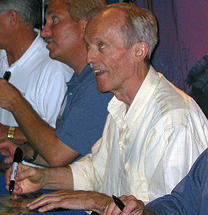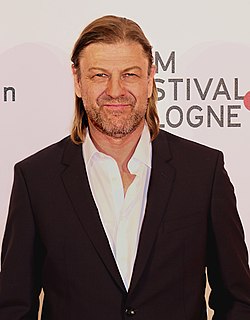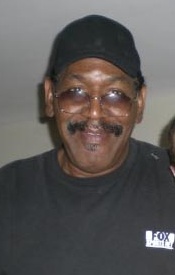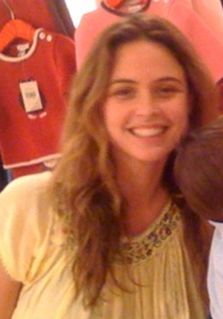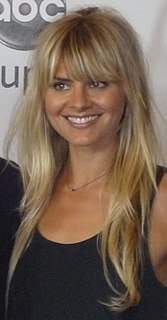A Quote by Don Bluth
If you look at the game and everything, it's not quite like looking at an animated film, because that's total character. This, this is really movement, but it's got funny little things if you look for the humor. They're actually getting to the character.
Related Quotes
When you are writing, you have to love all your characters. If you're writing something from a minor character's point of view, you really need to stop and say the purpose of this character isn't to be somebody's sidekick or to come in and put the horse in the stable. The purpose of this character is you're getting a little window into that character's life and that character's day. You have to write them as if they're not a minor character, because they do have their own things going on.
I never ask my wife about my flaws. Instead I try to get her to ignore them and concentrate on my sense of humor. You don't want any woman to look under the carpet because there's lots of flaws underneath. Joanne believes my character in a film we did together, "Mr. and Mrs. Bridge" comes closest to who I really am. I personally don't think there's one character who comes close... but I learned a long time ago not to disagree on things that I don't have a solid opinion about.
TV and film both attract me equally. In both, you do search for a role that would be enjoyable to do, that has a great storyline and then, secondly, you look at the cast and the crew - are they respectable? How I look at it is my character - has the character got enough substance? It can't just be a one faced character, which is there to fill a gap. He has to have a purpose, so if it ticks all of those boxes then generally it's a good choice.
In theatre, once you've got the character and you've got things together, you can relax into it. Film has a different feel - you don't get that through line of not stopping. Theatre is like a snowball gathering momentum and getting bigger, whereas in film, it's a bit stop and start - but you do tend to adjust to that quite easily.
I really took it in-house. The Constantine character has a kind of flesh-and-blood practical look at things that would seem, other people would use the word, occult or spiritual. But here, demons are real. So for me it was more taking it from the film itself. I didn't really need to go outside the piece itself to inform me because the perspective on it, what the character does, was provided by the script.
The [character] that I was able to crawl into the most was Lilo from Lilo & Stitch. This was sort of a cartoony-looking girl, but her problems were completely real. Her funky world that she createdI mean, you know kids like that. It was very honest and genuine and I wanted to do an honest job, so I thought about the character a lot before I animated it. I really got into the character, where [I] almost felt that pain that she had. The loss of the parents - you need to feel all that. That was a big learning experience for me.
